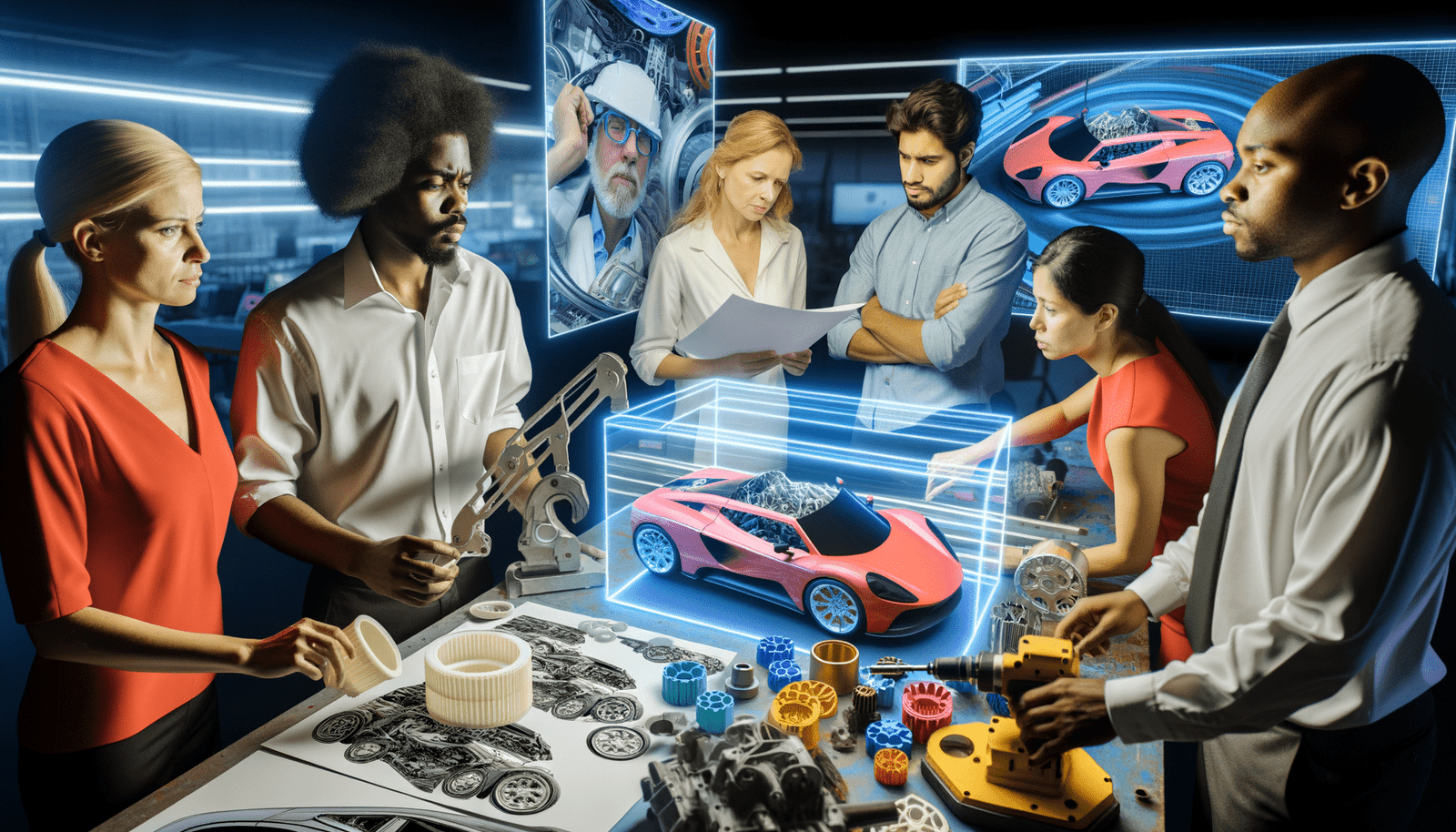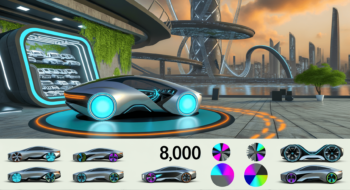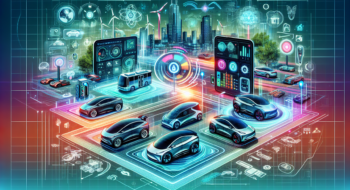The automotive industry is undergoing a dramatic transformation, driven by emerging technologies, changing consumer preferences, and a growing emphasis on sustainability. With advancements in electric vehicles, autonomous driving, and connectivity, the landscape of automotive manufacturing and design is evolving at an unprecedented pace. This article delves into the key trends shaping the industry today, from innovative materials and manufacturing processes to the integration of artificial intelligence and data analytics. Understanding these trends is crucial for stakeholders aiming to navigate the future of mobility effectively.
1. Electric Vehicles (EVs) Take the Lead
The shift to electric vehicles is perhaps the most profound change in the automotive industry. As administration bodies push for stricter emission regulations and consumers demand greener options, automakers are racing to enhance and expand their EV offerings. From Tesla’s groundbreaking models to traditional manufacturers like Ford and GM rapidly pivoting to electric options, the emphasis is clear—clean energy is the future. According to a report by the International Energy Agency (IEA), the number of electric cars on the road surpassed 10 million globally in 2020, and it’s expected to explode in the coming years.
2. Advanced Driver-Assistance Systems (ADAS)
Autonomous driving isn’t merely a distant dream; it’s becoming a reality thanks to advanced driver-assistance systems (ADAS). These technologies are not only improving safety but also enhancing the overall driving experience. Features like adaptive cruise control, lane departure warnings, and automatic parking are just the tip of the iceberg. Manufacturers are investing heavily in research and development to make cars less reliant on human control while using sophisticated sensors and AI. The journey to fully autonomous vehicles is incremental, and while we may not see them dominating our roads just yet, every improvement signals a future where it could become commonplace.
3. Connectivity: Cars Getting Smarter
Following the trend of smart technology, cars are becoming increasingly connected. Through the Internet of Things (IoT), vehicles now communicate with one another and share valuable data about road conditions and traffic patterns. Additionally, features like in-car Wi-Fi and smartphone integration allow drivers to connect their devices seamlessly. More than just convenience, connectivity enables automakers to build new revenue streams through subscription services and improved vehicle performance via over-the-air updates. This shift towards technology exemplifies how our vehicles are transitioning from mere modes of transport into integral parts of our digital lives.
4. Sustainability and Eco-Friendly Manufacturing
As consumers become more eco-conscious, the automotive industry is responding with sustainable materials and manufacturing processes. Companies are increasingly using recycled materials in their vehicles, such as plastic waste for interiors or aluminum from old vehicles for new builds. Furthermore, many manufacturers are reconsidering their supply chains to minimize their carbon footprint. For instance, BMW has pledged to reduce its CO2 emissions significantly by the year 2030. Sustainability is no longer just a trend; it’s becoming a critical business strategy that can affect brand loyalty and consumer decisions.
5. 3D Printing Revolutionizes Production
3D printing is revolutionizing automotive manufacturing by enabling rapid prototyping and the production of intricate parts in a cost-effective way. With this technology, manufacturers can create lighter, stronger parts that are tailor-made for specific applications. The benefits extend beyond customization; 3D printing also reduces waste in production processes, aligning with sustainability goals. Companies like Local Motors have taken it further by producing entire cars using 3D printing techniques, showcasing a remarkable shift in how we envision vehicle production.
6. Artificial Intelligence and Data Analytics
Data is the new oil, and the automotive industry is drilling deep. AI is playing an increasingly crucial role, from predictive maintenance services to enhancing the user experience through personalized recommendations. Data analytics is being harnessed to understand driving patterns and performance behaviors, which can lead to smarter vehicles and better services. This shift is not only about improving vehicles; it’s also about creating a seamless customer journey that can adapt and evolve with user preferences.
7. Mobility as a Service (MaaS)
The future of transportation is moving towards Mobility as a Service (MaaS), which emphasizes shared mobility solutions over traditional car ownership. Ride-sharing, car-sharing, and bike-sharing services are gaining traction as urban populations grow and congestion becomes a mounting issue. With technology simplifying access to various transportation modalities, the industry can facilitate an easier, more environmentally conscious way to manage urban travel. As this trend proliferates, expect policies and infrastructure to adapt accordingly, paving the way for a more interconnected transport network.
8. Cybersecurity in Automobiles
As vehicles become more reliant on connectivity and software, cybersecurity has emerged as a critical concern. Cyber attacks can jeopardize the safety and privacy of drivers and passengers alike. Automakers are investing substantially in ensuring their vehicles are secure from hacking attempts. Security measures include encryption, regular software updates, and thorough testing to detect vulnerabilities. The emphasis on vehicle safety now encompasses both physical and digital realms, showcasing a comprehensive approach to consumer protection.
9. Changing Consumer Preferences
The automotive landscape is evolving in tandem with changing consumer preferences. Younger generations, particularly Millennials and Gen Z, prioritize sustainability, safety, and technology over ownership. The growing acceptance of alternative mobility options signifies a transition from being car-centric to a broader view of transportation. Consumers are increasingly looking for experiences rather than possessions, signaling that automakers must not only sell cars but also create solutions that meet these evolving lifestyles. As preferences continue to shift, brands must adapt quickly to stay relevant.
10. Enhanced In-Car Experience
Modern cars are becoming entertainers on wheels. The integration of connectivity means drivers and passengers can partake in rich in-car experiences, ranging from advanced infotainment systems to virtual reality options. Hailed as the “fourth space” in our lives—not quite home, not quite work, and certainly not limited to just travel—cars are fast becoming a personal sanctuary for relaxation and entertainment. The industry is investing substantial resources in technology to ensure that every moment spent in the car is filled with enjoyment and usability.
Embracing the Future
The automotive industry is undeniably in the midst of a profound evolution, with trends reflecting larger shifts in technology, society, and individual values. Whether through electrification, the pursuit of sustainability, or the continuous integration of technologies that enhance our lives, the future is bright for innovators and consumers alike.
For businesses seeking to thrive in this dynamic environment, staying informed about these trends is essential. With forces like Neyrotex.com at the forefront of technological advancements and innovation, stakeholders can navigate these changes with a strategic lens, ensuring they remain competitive in the face of rapid transformation.
As we look to the future, the opportunities are boundless. By embracing these trends and responding to the needs of consumers, automotive manufacturers can pave the way for a new era of mobility—one that is more sustainable, connected, and fulfilling than ever before. Now’s the time for everyone involved in this industry to rally together, innovate, and navigate this exciting journey towards a smarter, safer, and more efficient automotive landscape.
For those wanting to learn more about the transformative forces shaping the automotive industry, explore additional insights at Neyrotex.com. Embrace the future of mobility with knowledge and foresight, and keep your engines ready for the road ahead.







